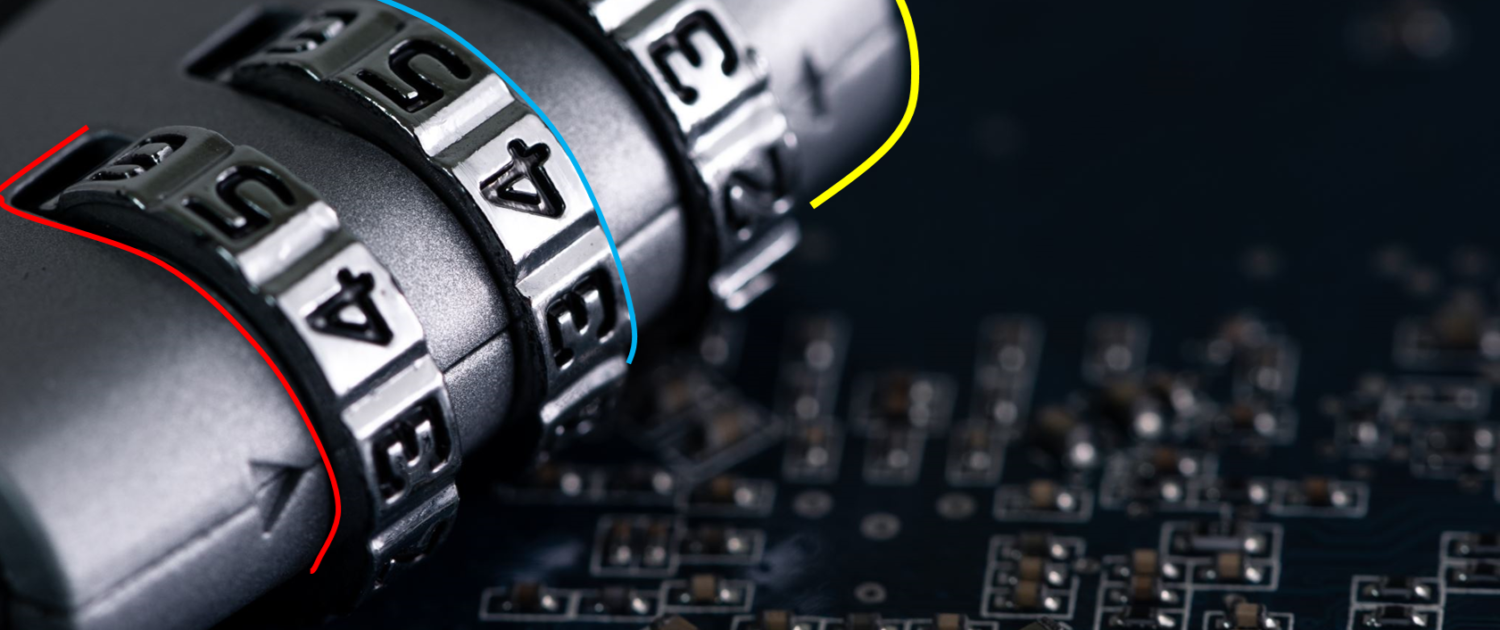The Rise of Blockchain in the Contact Center
Could blockchain be the future of the contact center and customer experience?
For years, the term “blockchain” has largely been relegated to the financial landscape, thanks to its close connection with Bitcoin and cryptocurrencies. However, while blockchain is part of the technology behind the crypto revolution, it’s also capable of so much more.
Not just a tool for the management of digital finances, the blockchain is a powerful and disruptive technology focused on trust and security. Since security and trust are also the foundations of a strong contact centre environment, it makes sense that blockchain technology would potentially have a role to play in the future of CCaaS development.
Let’s take a closer look at the development of blockchain in the contact centre.
Contact Centers and the Blockchain
The contact center is an ever-evolving environment for managing, supporting, and delivering customer experiences. These environments are responsible for everything from facilitating crucial sales, to delivering excellent customer experiences.
In recent years, contact centres have begun to face increasing pressure to evolve and innovate as customer expectations rise. Today’s customers want to be able to access a personalized, efficient, and convenient experience with a company on multiple channels, with minimal time wasted. At the same time, however, they demand contact centres keep the details they use to offer those personalized experiences secure and private.
Finding the balance between accessing and using the right information to make the contact center as effective as possible and maintaining compliance standards has been extremely difficult for the contact center landscape. The blockchain could be one of the primary technologies available to help.
The blockchain is, fundamentally, a method of storing information across multiple points in a decentralized ledger. Each node within a network ledger contains a block of information, and this information can be validated using cryptographic relationships.
In recent years, leading companies around the world have begun using the blockchain to create more secure and efficient experiences for customers with the use of things like digital identity management, and smart contracts.
Identity Management for the Contact Centre
Bringing the blockchain into the contact centre has several advantages for the CX landscape. The first and most valuable landscape for blockchain in the contact centre is in identity management. Blockchain in the contact centre allows for the creation of an identity supported by a chain of custody.
Each individual contact in a blockchain-enabled contact centre can be identified by a unique identifier (a telephone number) linked to a consumer or enterprise. “Digital Identity” is emerging as an increasingly important concept at a time when we’re spending more of our time in virtual environments. With Blockchain, we can transform the management of identities from a Web2-based ecosystem where people don’t have full ownership over their Digital ID, to a web3-based future.
In the past, identity management has been a significant problem facing all kinds of contact centers, prompting issues with everything from fraud to customer security. The issues faced by contact centres in relation to identity management are influential on both an internal, and external basis.
For instance, internally, problems include:
- Lack of telephone number database accuracy.
- Inability to verify users and individuals without extensive security questions.
- Problems with identifying the legitimacy of a call-back number.
Externally, issues with the management of digital identity makes it difficult for contact centres to deliver a fast and efficient level of service to customers, while maintaining STIR/SHAKEN compliance. With the blockchain to unlock a new future of digital identity management, it’s possible for businesses to finally increase the opportunities for frictionless interactions between contact centers and customers. What’s more, the “chain of custody” for digital identity will lead to:
- Greater transparency of information
- Improved information fidelity
- More immutable data stored in a distributed database
- Enhanced opportunities for security and fraud prevention
With Web3 promising a decentralized future and prompting customers to take more ownership over their identities, Identity Management will become a table stakes part of conducting business, regardless of whether you’re a B2B or B2C brand.
Blockchain will be the key to allowing companies to automatically check whether a person is who they say they are in as little time as possible. This could help to reduce the rising issue of identity fraud in the contact center environment and ensure consumers can comfortably trust the companies they work with.
Will Blockchain in the Contact Center Improve CX?
The value of bringing blockchain into the contact center revolves primarily around the ability to create a sense of trust, transparency, and credibility between companies and customers. Blockchains, above all else, provide companies with a consistent record of crucial information.
Used correctly, blockchain technology can enhance the way information is stored and leveraged in the contact center and boost the levels of trust between service providers and their clients. Some of the most significant ways blockchain could influence the CX environment in the years ahead include.
Faster, more relevant interactions
With digital identities stored in the blockchain, professionals will be able to access relevant customer data securely and with permission from the client. In some cases, it may even be possible to validate a client’s identity using their digital ID within the blockchain.
Through secure access to relevant customer data and meaningful insights, professionals will be able to deliver more valuable interactions, based on contextual information. This has the potential to reduce interaction times, increase customer satisfaction scores, and build brand loyalty.
Reduced contact center costs
With access to more accurate customer information, professionals brought into the contact center environment would potentially need less training and guidance to deliver meaningful experience. This could help to reduce the overall costs of the average contact center, while increasing the potential profits generated by valuable brand/consumer interactions.
Having a completely transparent and traceable data set on the blockchain could also help contact centers to make their environments more report-friendly and auditable. This could reduce the risk of having to pay expensive fines or deal with legal fees when issues arise about service quality.
Improved omnichannel opportunities
As customers continue to grow more comfortable with a digital environment for communicating with and reaching their preferred companies, omnichannel interactions are becoming increasingly essential. Notably, today’s consumers want to be able to interact with agents and company representatives on a range of different channels, but they don’t wan tot repeat themselves.
With blockchain information to help track conversations between multiple different channels, it may be much easier for companies to provide a more consistent experience for their target audience. Employees leveraging the blockchain when engaging with customers will be able to keep track of everything from their previous purchases to previous interactions with the service team.
Improved customer security
As mentioned above, the blockchain is becoming a critical component in the rise of the digital identity movement, and web 3.0. As customers continue to take ownership of their online identities, the blockchain could become a valuable part of how companies identify the customers they’re doing business with and validate crucial information.
The current landscape for digital identity is complex and fragmented, with very few strong links between a person’s online and offline personalities. This makes it much easier for fake identities to be created, prompting fraudulent activity. With digital identities verified by a blockchain, this would no longer be as much of a significant problem.
Blockchain will also help to overcome the issues caused by most of us storing valuable identification information on centralized government databases, with several single points of failure. As part of the Web 3.0 revolution, and the movement towards decentralized identities, the blockchain will help to reduce the number of large databases controlling the PII of millions of accounts.
Better peace of mind for customers
Blockchain can pave the way to stronger more meaningful interactions between brands and customers. Smart contracts ride on blockchain networks, offering another useful capability within the blockchain environment.
Smart contracts are one of the first aspects of the blockchain showing potential for the contact center landscape. Essentially, these tools are systems for tamper-proof data storage and system state representation
Imagine, for instance, a customer ordering a personalized item from an online company. If this person notices they’ve made a mistake on the order, they will contact the company to rectify the issue. If the customer receives the item but the mistake wasn’t rectified, they might file a complaint.
The use of blockchain in the contact center will ensure the online company will have an accurate record of all transactions with that customer, so they can see evidence of the client attempting to rectify the problem. This ensures the company can act in the best interests of the customer based on the facts of what actually happened with each case.
Blockchain could be the Future of the Contact Center
As demands for more efficient, effective, and meaningful customer experiences continue to grow, the use of innovative new technologies in the contact centre is exploding. The right disruptive technology can make a huge difference to the level of service a company can offer its customers.
The blockchain, with its focus on transparency, trust, and the meaningful use of data, could play a significant role in the ability of brands to delight their customers in the years ahead. There’s definitely a lot of scope for what blockchain could do in the contact center.




